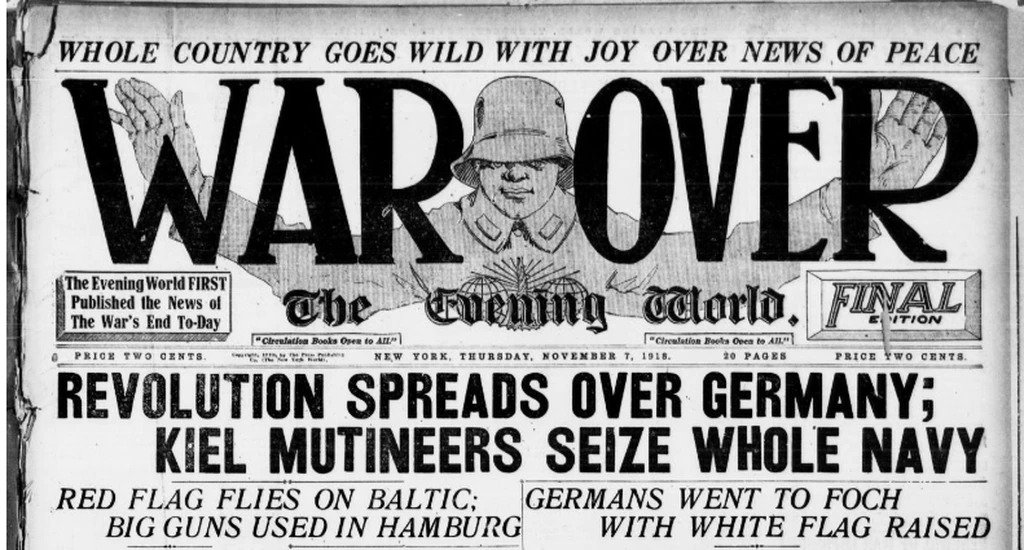Authors:
Historic Era:
Historic Theme:
Subject:
November 1993 | Volume 44, Issue 7


Authors:
Historic Era:
Historic Theme:
Subject:
November 1993 | Volume 44, Issue 7

The greatest war in history came to an end on November 11, but not without a final cruel twist. On November 7 Roy W. Howard, president of the United Press Association, received what he thought was the scoop of the year from a group of jubilant French sailors docking at Brest Harbor, while he himself was waiting to sail for America. Using the offices of La Dépêche , Howard cabled the incredible news to New York, adding the name of his Paris office manager, Philip Simms, to the cable out of courtesy: “URGENT. ARMISTICE ALLIES GERMANS SIGNED ELEVEN [THI]SMORNING HOSTILITIES CEASED TWO [THI]SAFTERNOON. SEDAN TAKEN [THI]SMORNING BY AMERICANS .”
Simms’s name gave the local rumor a credence it might not otherwise have had. The Brest censor assumed the story had originated in Paris and passed it on; in New York the United Press office in the Pulitzer Building on Park Row received the “urgent” cable at noon. The message had apparently come from Paris, and it received the censor’s okay at eleven fifty-nine. The story was immediately fed by wire to hundreds of subscribing newspapers in time to make their early-afternoon editions. Even as Arthur Hornblow, Jr., of the American Expeditionary Forces intelligence staff in Brest, was calling Paris to confirm the story for Howard, every city in America was starting to ring out the peace. No one in military intelligence in the French capital could verify; news of the signing, now common knowledge in delirious Brest, was Howard’s to tell.
The UP story unleashed happy riots in New York, Chicago, Boston, San Francisco, and a thousand small towns in between. The gates of the shipyard in Quincy, Massachusetts, were shoved aside as soon as word got out, and ten thousand shipyard workers paraded through town, waving their picks and shovels. In Minnesota a celebratory shot from a cannon injured carousers; in Chicago police clubbed revelers to keep order. Bells, air-raid sirens, and factory whistles signaled the armistice in New York at 1:00 P.M. , and the streets filled immediately. Shop owners shut down for the day, posting signs that read TOO HAPPY TO WORK or CLOSED FOR THE KAISER’S FUNERAL, and impromptu parades carried makeshift “coffins” for the German leader. Many schools and courts were dismissed; the stock exchange closed.
By dusk the streets were ankle-deep in tons of ticker tape, wastepaper, and torn-up telephone books; hundreds of calls were placed to the sanitation commission complaining about windowsills clogged with the confetti. At the Knickerbocker Hotel one elated couple—a portly man and a